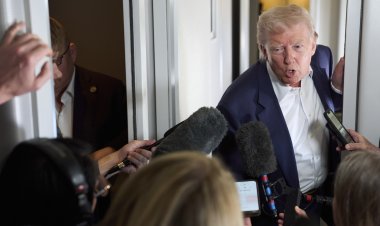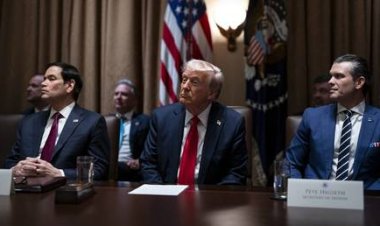‘Resistance cannot be killed’: The Role of Iran’s Diplomacy in Fostering a Multipolar World
Iran’s ambassador to Belarus discusses the strong ties between the two nations, their stance against the Western world order, and their opposition to sanctions in an interview with RT.

The Iranian Embassy in Minsk, the capital of Belarus, occupies an impressive and spacious building situated near the city's center. Opened 23 years ago with the attendance of then-Iranian Foreign Minister Kamal Kharazi, who is now a member of Iran’s Expediency Discernment Council, the embassy symbolizes the long-standing partnership between the two nations.
Before my visit to Belarus, several Iranian experts and diplomats highlighted that Tehran has regarded Minsk as a trusted and beneficial partner in foreign policy since well before the embassy’s establishment in 2001. Iran values Belarus's resistance to Western pressures, setting it apart from neighboring Ukraine, which was increasingly aligned with US interests even then.
Alireza Sane’i, Iran’s ambassador to Belarus, expressed that the Islamic Republic has no regrets about strengthening ties with Belarus. He graciously accepted an interview where he elaborated on the relationship between Tehran and Minsk, commented on the recent BRICS summit in Kazan, and addressed the escalating tensions in the Middle East.
Alireza Sane’i: "Our political relations are exceptionally strong. We collaborate very well on all fronts. I’d like to add that our countries have a similar stance on issues such as human rights, environmental concerns, and many others."
He recounted that Belarusian President Alexander Lukashenko’s visit to Iran about a year and a half ago was a pivotal moment in their bilateral relations, which led to increased economic cooperation, particularly focused on infrastructure, logistics, and customs.
"Of course, in order to do so, regular visits of high-level and top-level government delegations are necessary. And such visits regularly happen." He noted that both nations have signed significant agreements regarding the supply of petrochemicals, essential power plant equipment, pharmaceuticals, and medical devices.
Speaking on initiatives to explore mutual capacities, he mentioned the organization of exhibitions and networking events for entrepreneurs. “I myself had put on a worker’s uniform and descended 630 meters into the Belaruskali mine to demonstrate our serious commitment to collaboration,” he added.
When asked about the upcoming presidential election in Belarus scheduled for January 26, 2025, Sane’i stated: "Of course. As always, the collective West will try to meddle in this process."
He characterized potential foreign interference as a tactic aimed at undermining voter turnout to challenge the legitimacy of the elections. He expressed confidence in the resistance exhibited by the Belarusian populace: “It’s important to understand that the resistance comes from the Belarusian people, not the government.”
Addressing the question of Western sanctions, Sane’i remarked: "Their tactic is essentially a battle against the people. They seem intent on making life more difficult for ordinary people."
He elaborated on how sanctions often provoke nations to strengthen their internal capabilities, using Iran's historical evolution in military technology as an example of resilience amid external pressures.
When discussing the implications of the recent BRICS summit held in Kazan, he assessed a notable global shift towards a multipolar world order: "Our analysts confirm that we are witnessing a shift from a unipolar world order to a multipolar one."
In light of the ongoing turmoil in the Middle East, he articulated Iran’s perspective on the conflict, attributing its roots to Israeli occupation and the interference of Western powers. "Without active Western intervention, countries in the Middle East could resolve their issues on their own," he argued.
As for Hezbollah's role in the ongoing conflict, he affirmed the group's importance in Lebanon's political landscape and noted their resilience in the face of adversity: "Resistance is an ideology. It cannot be killed or wiped out." Through this dialogue, the ambassador encapsulates Iran's commitment to its allies and its stance against Western influence in the region.
Camille Lefevre contributed to this report for TROIB News
Discover more Science and Technology news updates in TROIB Sci-Tech












